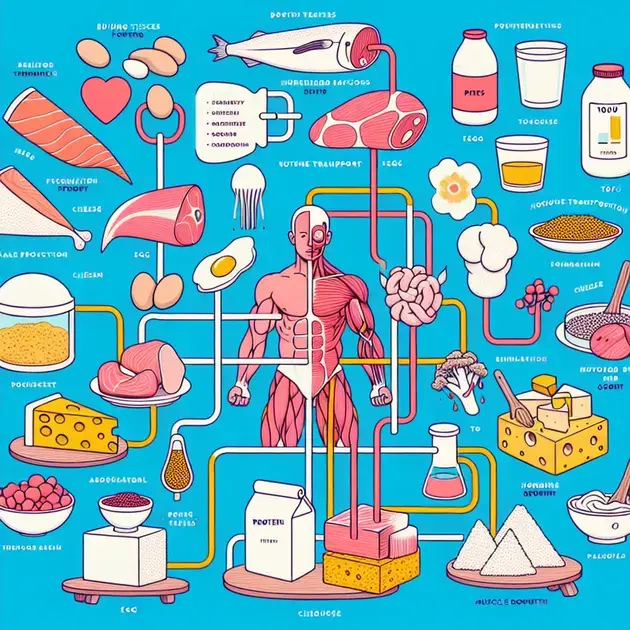
Protein: Benefits, Sources, and How Much You Really Need
Protein is an essential nutrient that plays a crucial role in the overall functioning of our bodies. It is known for its various benefits, including muscle growth and repair, weight management, and satiety.
One of the key benefits of protein is its role in muscle growth and repair. When we engage in physical activities, such as strength training or endurance exercises, our muscles undergo wear and tear. Protein helps in repairing and rebuilding these muscles, contributing to their growth and strength.
Protein is also important for weight management. It has a high thermic effect, which means that our bodies burn more calories in the process of digesting and metabolizing protein compared to other macronutrients. Including protein-rich foods in our diet can therefore increase our metabolism and help us burn more calories, even at rest.
Moreover, protein is known for its role in promoting satiety. When we consume protein-rich foods, they tend to keep us full and satisfied for a longer period of time. This can prevent overeating and snacking on unhealthy foods, thus aiding in weight management.
Sources of Protein
Now, let’s talk about the sources of protein. Some common sources of protein include meats (such as beef, poultry, and fish), dairy products (such as milk, cheese, and yogurt), legumes (such as beans, lentils, and chickpeas), and plant-based sources (such as tofu, quinoa, and nuts). It is important to note that different sources of protein may offer varying amounts of essential amino acids, so it is beneficial to have a varied protein intake to ensure we are consuming all the necessary nutrients.
How Much Protein Do You Really Need?
But how much protein do we really need? The amount of protein required varies from individual to individual, depending on factors such as age, sex, activity level, and overall health. However, a general guideline suggests consuming around 0.8 grams of protein per kilogram of body weight. Athletes or individuals engaging in intense physical activities may require higher protein intakes to support muscle recovery and performance.
Conclusion
In conclusion, protein is a vital nutrient with numerous benefits for our bodies. Its role in muscle growth and repair, weight management, and satiety make it an essential component of a healthy diet. Incorporating protein-rich foods from various sources can help us meet our daily protein requirements and maintain overall health. So make sure to include protein in your diet and enjoy its many benefits!
Note: The content of this article is based on the title “Protein: Benefits, Sources, and How Much You Really Need” and aims to provide a general understanding of protein and its importance. For comprehensive information, it is recommended to read the complete article linked in the source.